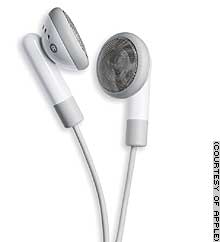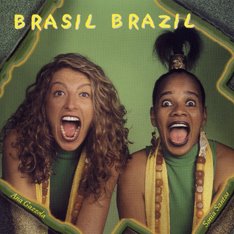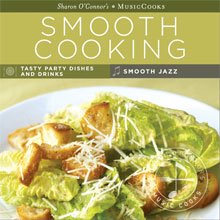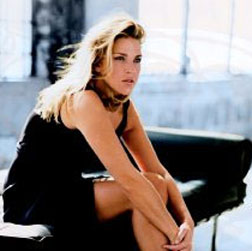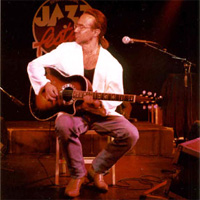
Position Artist Title (Label)
1 Nils Pacific Coast Highway (Baja/TSR)
2 Soul Ballet Cream (215)
3 Tim Bowman Summer Groove (Liquid 8)
4 Kenny G. Pick Up The Pieces (Arista/RMG)
5 Michael Lington Two Of A Kind (Rendezvous)
6 Dave Koz Let It Free (Capitol)
7 Boney James f/Joe Sample Stone Groove (Warner Bros.)
8 Steve Cole Thursday (Narada Jazz/EMI)
9 Paul Taylor Nightlife (Peak)
10 Euge Groove XXL (Narada Jazz/EMI)
11 Richard Elliot People Make The World Go Round (Artizen)
12 Chuck Loeb Tropical (Shanachie)
13 Mindi Abair Come As You Are (GRP/VMG)
14 Norman Brown Up 'N' At 'Em (Warner Bros.)
15 Marion Meadows Sweet Grapes (Heads Up)
16 Kenny G. f/Earth, Wind & Fire The Way You Move (Arista/RMG)
17 Paul Brown Moment By Moment (GRP/VMG)
18 Richard Elliot Your Secret Love (GRP/VMG)
19 Paul Hardcastle Serene (Trippin' 'N' Rhythm)
20 Wayman Tisdale Ain't No Stoppin' Us Now (Rendezvous)
21 Gerald Albright To The Max (GRP/VMG)
22 Chris Botti Back Into My Heart (Columbia)
23 Paul Jackson, Jr. Never Too Much (GRP/VMG)
24 Dave Koz Love Changes Everything (Capitol)
25 Norman Brown West Coast Coolin' (Warner Bros.)
26 Ken Navarro You Are Everything (Positive)
27 Brian Culbertson Hookin' Up (GRP/VMG)
28 George Benson Softly, As In A Morning Sunrise (GRP/VMG)
29 Jeff Lorber Ooh La La (Narada Jazz/EMI)
30 Paul Jackson, Jr. Walkin' (Blue Note/EMC)
31 Fourplay Fields Of Gold (RCA Victor/RMG)
32 Vanessa Williams You Are Everything (Lava)
33 Anita Baker How Does It Feel (Blue Note/Virgin/EMC)
34 Chris Botti No Ordinary Love (Columbia)
35 Queen Latifah California Dreamin' (Vector)
36 3rd Force Believe In Me (Higher Octave/EMI)
37 Euge Groove Get Em Goin' (Narada Jazz/EMI)
38 Walter Beasley Coolness (Heads Up)
39 Ray Charles w/Diana Krall You Don't Know Me (Concord)
40 David Sanborn Tin Tin Deo (GRP/VMG)
41 Pieces Of A Dream It's Go Time (Heads Up)
42 Hall & Oates I'll Be Around (U-Watch)
43 Seal Walk On By (Warner Bros.)
44 Kim Waters In Deep (Shanachie)
45 Anita Baker You're My Everything (Blue Note/Virgin/EMC)
46 Boney James Here She Comes (Warner Bros.)
47 Alicia Keys If I Ain't Got You (J/RMG)
48 Jonathan Butler Fire & Rain (Rendezvous)
49 Average White Band Work To Do (Liquid 8)
50 Peter White How Does It Feel (Columbia)
51 Mindi Abair Make A Wish (GRP/VMG)
52 David Pack You're The Only Woman (Peak)
53 Donny Osmond Breeze On By (Decca)
54 Wayman Tisdale Ready To Hang (Rendezvous)
55 Paul Brown Cosmic Monkey (GRP/VMG)
56 Marion Meadows Suede (Heads Up)
57 Joyce Cooling Camelback (Narada Jazz/EMI)
58 Pamela Williams Fly Away With Me (Shanachie)
59 Michael McDonald Tracks Of My Tears (Motown)
60 Kem I Can't Stop Loving You (Motown/Universal)
61 Jeff Golub Simple Pleasures (Narada Jazz/EMI)
62 Nelson Rangell Don't You Worry 'Bout A Thing (Koch)
63 Marc Antoine Madrid (GRP/VMG)
64 Alexander Zonjic Leave It With Me (Heads Up)
65 Chieli Minucci The Juice (Shanachie)
66 Greg Adams Firefly (215)
67 Brian Simpson It's All Good (Rendezvous)
68 Boz Scaggs Lowdown (Unplugged) (Virgin)
69 Rick Braun Shining Star (Artizen)
70 Mariah Carey We Belong Together (Island/IDJMG)
71 Boney James 2:01 AM (Warner Bros.)
72 Warren Hill Still In Love (Popjazz/Native Language)
73 Acoustic Alchemy Say Yeah (Higher Octave/EMI)
74 Michael McDonald I Heard It Through The Grapevine (Motown)
75 Matt Bianco f/Basia Ordinary Day (Decca/Universal)
76 Adani & Wolf Daylight (Rendezvous)
77 Kim Waters Steppin' Out (Shanachie)
78 Def Jazz f/Gerald Albright Hey Young World (GRP/VMG)
79 Dido White Flag (Arista/RMG)
80 Camiel I'm Ready (Rendezvous)
81 Joyce Cooling Daddy-O (GRP/VMG)
82 Peter White Dreamwalk (Columbia)
83 Michael Buble Home (143/Reprise)
84 Pieces Of A Dream Night Vision (Heads Up)
85 Russ Freeman East River Drive (Q/Atlantic)
86 Steve Oliver Chips & Salsa (Koch)
87 Soul Ballet She Rides (215)
88 Chuck Loeb Pocket Change (Shanachie)
89 Peter White Turn It Out (Columbia)
90 Marcus Miller f/Eric Clapton Silver Rain (Koch)
91 Tha' Hot Club I'm Gonna Love You Just A Little More Baby (Shanachie)
92 Renee Olstead A Love That Will Last (143/Reprise)
93 Richard Smith What'z Up? (A440)
94 Eric Marienthal Lefty's Lounge (Peak)
95 Herbie Hancock f/John Mayer Stitched Up (Hear Music/Vector)
96 Gregg Karukas Riverside Drive (N-Coded)
97 Everette Harp Can You Hear Me (A440)
98 Kirk Whalum Any Love (GRP/VMG)
99 Nils Summer Nights (Baja/TSR)
100 Najee 2nd 2 None (Heads Up International)
Visit radioandrecords.com to view the latest complete
Smooth Jazz ® National Airplay© listings.
Technorati tag:
Jazz

